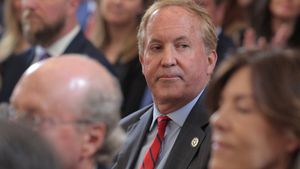The long-awaited film Becoming Chaz, a documentary about Chaz Bon’s female-to-male (FTM) gender reassignment aired this week on OWN: Oprah Winfrey Network. And it captures not only the arduous trek of coming out as transgender, but it also captures the universal experience we all face of coming out as our true selves.
As the only child of the world-renowned pop duo Cher and Sonny Bono, many of us remember Chaz as their cherub-faced daughter Chastity, blowing kisses to the audience of her parents top-rated variety show The Sonny & Cher Show.
In 1995 Chaz was outed as a lesbian. But this time Chaz is in control, and of his own volition announcing he’s now legally a man.
But our trans men and women who have the courage to come out sadly and too often receive more criticism, sarcasm and ridicule than praise.
For example, in "New York Times" reporter Cintra Wilson’s article "The Reluctant Transgender Role Model," she attempts to comprehend the enormity of Chaz’s courage, and perhaps to applaud his perseverance to undergo surgery. As a cisgendered person (one whose gender matches his or her biological sex) Wilson’s remark is, at best, insensitive and, at worst, insulting.
"You come away with a palpable understanding of how unendurably he must be suffering in his body to want to have his own sex characteristics amputated," Wilson wrote.
And with the heterosexist assumption that the reason any child who is lesbian, gay, bisexual, or transgender (LGBT) might have something to do with inept parenting, Wilson asks these naggingly insulting questions in her article:
"Could it be possible that the fact that Chaz is now a man is somehow Cher’s fault? Did the toxic culture of celebrity damage Chastity/Chaz’s gender identity? Did Cher’s almost drag queen-like hyper-female persona somehow devour Chastity’s emerging femininity? Could Chaz’s transition have been motivated by gender-bent Oedipal revenge? Is he reclaiming the childhood attention his superstar mother always diverted? It is remotely possible that he needed to make the transition because his mom is Cher?"
"I don’t think the way I grew up had any effect on this issue," Chaz told Wilson. "There’s a gender in your brain and a gender in your body. For 99-percent of people, those things are in alignment. For transgender people, they’re mismatched. That’s all it is. It’s not complicated; it’s not a neurosis. It’s a mix-up. It’s a birth defect, like a cleft palate."
To no one’s surprise, social critic and self-described dissident feminist Camille Paglia, in a 54-second video by Xtraonline that went viral, had to volunteer her scurrilous viewpoint on Chaz’s choice to undergo gender reassignment as a form of bodily mutilation. Paglia opines that Chaz’s unhappy and confusing childhood had nothing to do with him wanting a sex change, but she never states what Chaz’s unhappy and confusing childhood was about. Instead, Paglia voices her worries. Paglia’s biggest worry is that such an outrageous act of changing one’s gender would gravely influence children who feel born in the wrong body -- an adolescent phase she disdainfully states she once experienced but overcame.
more on next page...
\\\
(continued)
And when we see in the documentary Cher -- gay icon nonpareil -- not celebratory about Chaz’s transition as her close friends and girlfriend Jenny are, it’s unnerving. But Cher, in my opinion, comes across more as a frightened parent than as an insensitive transphobic. Worried about the toil it will take -- physically and mentally -- on Chaz to endure ongoing male hormone shots for the rest of his life, Cher, still using the female pronoun, states "I’m afraid she’s not going to be healthy, I’m afraid it’s too much for her."
During the documentary, Cher is heard pining about what she perceives as the loss of her daughter forever when she stated she should have saved the familiar sound of Chaz’s voice on an answering machine before he began male hormone therapy.
But Cher understands Chaz’s courageous act to transition. "If I woke up tomorrow in the body of a man, I couldn’t get to the surgeon fast enough," she stated in the documentary.
Chaz doesn’t walk away from the documentary without disturbingly turning a few heads in what many would agree are both sexists and misogynist remarks.
"Jenny and I had to relearn how to be together," Chaz states in the film. "I never really understood women before, to be honest, but I had a tolerance for women that I don’t have now. ...There is something in testosterone that makes talking and gossiping really grating. I’ve stopped talking as much. I’ve noticed that Jen can talk endlessly. ...I just kind of zone out. I just don’t care!" Chaz laughs.
Unthinkingly, Chaz’s buys into the fallacious notion of "biology is destiny," meaning we are slaves to our genes, and in his case hormones; he, also, is buying into the gender binary of male and female, which would categorically be dismissive of trans males and females.
"I’ve learned that the differences between men and women are so biological. I think if people realized that, it would be easier. I would be a great relationship counselor. I know the difference that hormones really make."
Chaz isn’t realizing that espousing biological essentialist rhetoric, he’s categorizing people by a few fixed characteristics and not allowing for change or variation within God’s human tapestry. And I am by these remarks.
However, I have to realize as a cisgendered lesbian, this is not my experience, and this is not my story. But rather I am reminded that the documentary Becoming Chaz is all about Chaz.































































































































